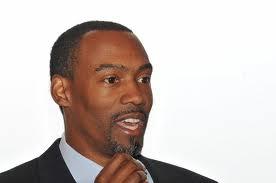One Among Many
THE NEW YORK TIMES
October 12, 2012
by Doug Glanville
Most major leaguers begin their baseball lives head and shoulders above other players. They may have dominated Little League; at school, they might have stood tall even as freshmen among seniors; later, maybe they were a very high draft pick. Even so, there’s always a moment when they realize there is, and always will be, someone better.
Miguel Cabrera’s winning the Triple Crown— truly a mark of excellence — certainly provided one of those moments. But it’s the diversity of talent on a team that matters most, and nothing brings that to light more than the playoffs. As it happens, the Detroit Tigers, Cabrera’s team, have just advanced to the American League Championship Series — the last round before, maybe, going to the World Series. With each step, individual performance continues to melt into a collective need to do one’s part. The player who comes off the bench to pitch when the starter gets hurt is as important as the player with the fullest trophy case. Just as we witnessed when Joe Girardi pinch-hit Raul Ibanez for Alex Rodriguez in the third game of the Yankees-Orioles division series.
Cabrera’s team is talented, and includes Prince Fielder, one of the highest-paid players in the game, and Justin Verlander, a rare comet who won both the M.V.P. and Cy Young awards in the American League last year. Equally rare is to have so many recognized players on one team and still acknowledge the possibility that they might not win it all. But make no mistake, it will take all 25 players and a manager pushing the right buttons to win much of anything. Any player will look around and know that he needs his teammates. For Cabrera to drive in all those runs, he needs people to get on base in front of him. For Verlander to make those pitches, he needs a good catcher, and a good defense behind him.
Baseball doesn’t allow you to start at the top and get the idea that you’re a one-man show. You must work your way through the minor leagues, honing skills both big and small, surrounded by players who are similarly adjusting. Then you must do it every day — not twice a week, not for just the summer, but when your arm hurts and you’re missing a wedding and you haven’t gotten a hit in five days. There are days when even someone as productive as Miguel Cabrera will look lost, overmatched, or just tired. Like anyone else, he has weaknesses. Pitch him up in the zone, and you may have a chance to get him out.
I had the pleasure of playing with Scott Rolen, currently on the just-eliminated Cincinnati Reds, when I was with the Philadelphia Phillies. I knew quickly that this was one of the most talented players I would ever see. One day, when we were playing the Expos in Montreal, Scott was leaning on the cage watching their star, Vladimir Guerrero, take batting practice. Everything Guerrero hit sounded as if he was swinging a redwood tree and hitting glass baseballs. Rolen stepped back from the batting cage and said, “He is so much better than I am it is ridiculous.”
By that point in my career, I knew I was not going to be the guy hitting 40 home runs a year. I had to find a way to thrive with speed, defense, making contact and being smart on the bases. I would have to create my own “Triple Crown,” based on my strengths, but without limiting my sense of possibility. Yet here was one of the best admitting he was only a shadow of our opponent.
But Rolen understood himself well. Once when he was asked his target number for home runs in a season, he replied, “I don’t believe in setting goals.” He explained, “So what happens when I reach it? Am I done?” Goals were limitations to him.
The first time I saw Miguel Cabrera, I saw no limits. He came up as a 20-year-old rookie for the Florida Marlins. Even then, he hit with skill beyond his years. He understood the strike zone, he was poised, he could hit any kind of pitch, and he could spray the ball around with power. It is one thing to know that a likely perennial all-star is better than you; it is another to realize someone could be 19 or 20 (see the M.V.P. candidate Mike Trout) and walk into the league as if it were a continuation of his Wiffle Ball games, when he beat the entire neighborhood to a pulp.
Yet baseball has a healthy way of making even the best of the best feel small. And every player, whether a free agent, first-round pick or the 25th out of 25 on a team, understands that every day he is competing with and against the best (and even wrangling with those who have come before), and that you don’t need a Triple Crown to carry a team on your back.
Cabrera has dominated not just this season, but for a decade. He has reached the sport’s offensive pinnacle, but even he knows it is fragile. His team was up in their division series two games to none, but their opponent, the Oakland A’s, won the next two and pushed it to a deciding game, despite the pedigree of award-winners on the Tigers’ roster. It is always one pitch, one game at a time. Even a Triple Crown winner has to accept that, and set his watch to sync with everyone on his team.
Republished from The New York Times






